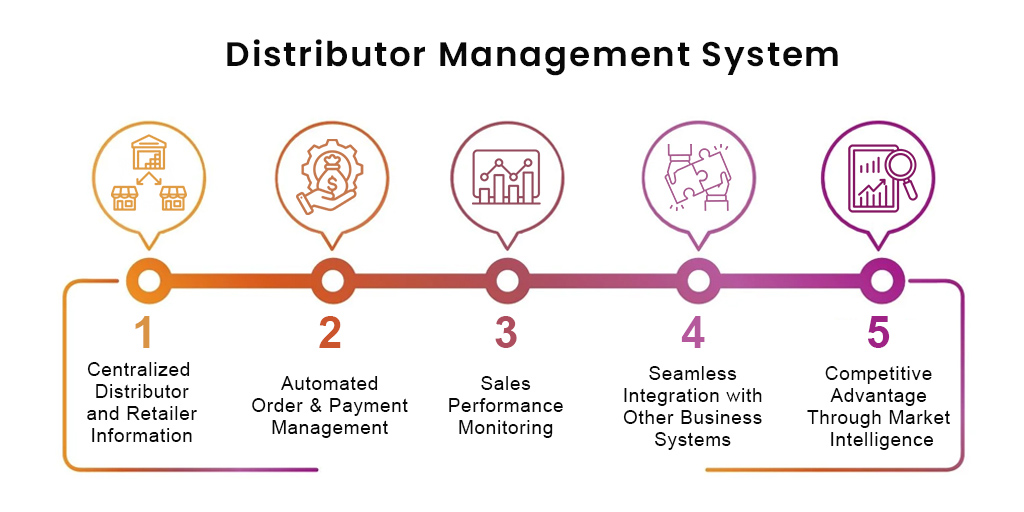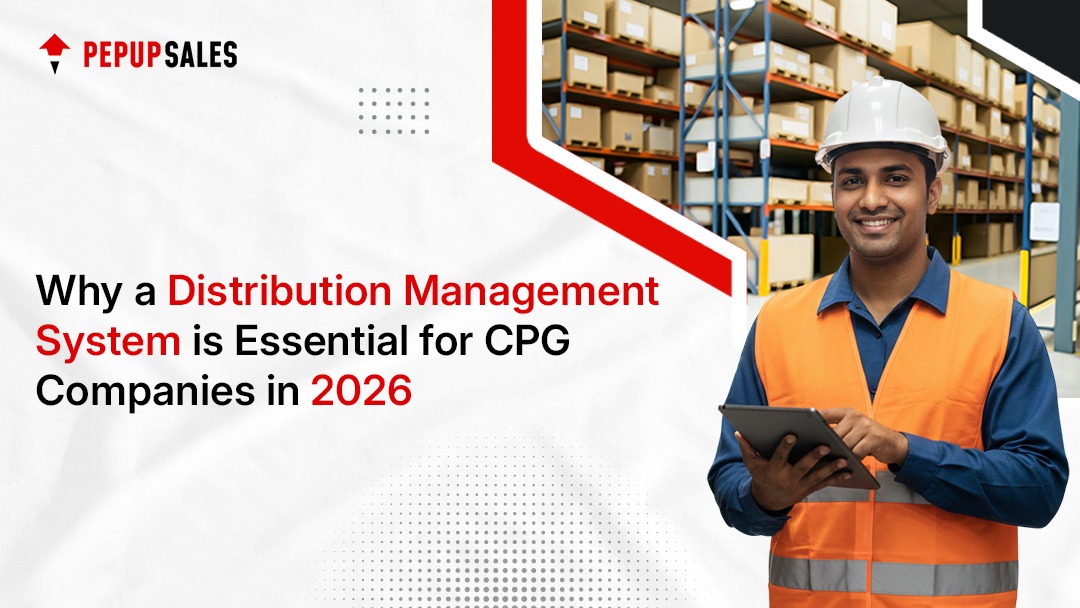With the rapid evolution of digital trends and the growing need for efficiency in both primary and secondary sales, a Distribution Management System (DMS) is becoming an increasingly important tool for CPG companies. As businesses realize the need for more efficient sales operations, managing distributors, suppliers, and retailers effectively requires clear visibility and streamlined processes. Without a robust system in place, businesses face inefficiencies, stockouts, and revenue loss. A well-integrated DMS simplifies communication across multiple sales channels, ensuring alignment and smooth execution of sales strategies.
A DMS serves as a centralized platform that connects every stakeholder in the supply chain, reducing manual errors and enabling real-time data flow. By replacing outdated processes with automated solutions, companies can respond faster to market demands, minimize lost sales, and maximize profitability. As competition intensifies and consumer preferences shift rapidly, adopting an automated distribution management system software is more crucial than ever.
To thrive in 2026, CPG companies must leverage distribution automation to enhance efficiency, scalability, and market competitiveness. Data-driven insights, automated workflows, and seamless system integrations are key to optimizing operations and driving long-term growth.
Why CPG Companies Can’t Ignore a DMS in 2026
Relying on traditional distribution methods in today’s AI and big data-driven world puts companies at a disadvantage. Outdated systems lead to slow order handling, delayed shipments, and weak sales monitoring, resulting in product shortages and lost revenue. A supply chain distribution software addresses these challenges head-on.
By providing real-time visibility into distributor activities, improving inventory management, and enhancing dealer relationships, a distribution software enables CPG companies to operate with greater precision. Managing orders, billing, and data analysis through a comprehensive DMS allows businesses to make informed decisions and optimize workflows. With transparent transaction tracking and automated reconciliations, companies can strengthen relationships with distributors and retailers while improving overall efficiency.
Beyond internal operations, a sap distribution management system fosters better supply chain relationships. Faster order fulfillment, accurate stock replenishments, and seamless communication help build long-term loyalty among stakeholders. As digital advancements reshape the industry, modernizing distribution management is crucial for staying competitive.
Key Advantages of a Distributor Management System for CPG Companies
1. Real-Time Visibility Over Operations
A DMS shows sales managers all current sales information, including order progress and field agent status. Organizations can spot operational challenges and stop order delays while making important business choices. When data appears in real-time, companies can forecast sales better while arranging products more efficiently to boost performance. Seeing sales performance and stock updates clearly helps the team solve problems more quickly because they understand what is happening.
2. Optimized Inventory and Supply Chain Management
BI-driven distribution automation helps companies maintain optimal inventory levels at all their distribution areas. Companies detect popular products faster to stop stockpiling and keep distributors fully stocked. Businesses can use predictive analytics to adjust production levels, helping them avoid unnecessary stock buildup and waste reduction. A streamlined supply chain becomes more profitable through this approach.
3. Significant Reduction in Operational Costs
When companies handle distribution tasks manually, they create operational problems that raise overall expenses. A DMS automates repetitive work, preventing mistakes and decreasing administrative costs. A distributor management system helps businesses reduce operational expenses by 15% when it automates daily tasks and speeds up operational processes. Better route planning saves money on transportation and fuel, strengthening business results.
4. Smarter Resource and Time Allocation
A DMS system helps sales teams focus on essential duties such as improving retailer connections and securing better product placements for growth. The system helps salespeople make better use of their time, allowing them to reach more locations within their work area. A drastic reduction in manual work lets businesses use their resources better, making teams more efficient while increasing sales.
5. Enhanced Compliance and Regulatory Adherence
CPG companies must follow official market rules to be successful, making compliance a priority. A DMS, including an ERP module for sales and distribution, helps companies stay tax and legally compliant by tracking documents and recording actions. Following legal regulations protects the company from liability and ensures smooth operations.
6. Improved Distributor and Retailer Relationships
A correctly organized CRM distribution system allows manufacturers to share information seamlessly with their distributors and retailers. A well-implemented sap distribution management system for tracking orders and shipping goods on time helps manufacturers build a reliable distribution network, increasing their market reach.
7. Data-Driven Decision Making
Sales information and performance reports help companies set better prices, create more effective marketing strategies, and expand distribution channels in marketing management. A DMS helps companies determine market leadership strategies and swiftly adapt to changing market conditions.
How a Distributor Management System Works

1. Centralized Distributor and Retailer Information
A distribution management software holds distributor contact information and order behavior details, helping companies predict inventory demand and customize their sales plans. Companies can make better marketing decisions and plan ahead by analyzing their data. They also gain stronger relationships with supply chain partners.
2. Automated Order and Payment Management
Automation handles all order and payment activities faster than humans, preventing errors in the cash flow process. Integrating digital payment solutions with a DMS improves transaction security and reduces reliance on cash handling. A shorter payment period helps maintain good financial health for a business.
3. Sales Performance Monitoring
Key business performance indicators—including sales totals, geographical sales patterns, and distributor participation—help companies refine their market approach. Businesses can optimize their distribution channels in marketing management by using BI to identify buying patterns, predict product demand, and adjust pricing strategies. This enables companies to stay ahead of market trends instead of reacting late.
4. Seamless Integration with Other Business Systems
A modern DMS connects with ERP and CRM distribution systems, ensuring seamless data flow between departments and improving operational efficiency. When properly integrated, these systems prevent data silos and provide full supply chain visibility for decision-makers.
5. Competitive Advantage Through Market Intelligence
A distributor management system allows CPG companies to analyze market trends faster and respond more efficiently to shifts in consumer demand. Studying distributor sales data enables businesses to refine product selections, pricing strategies, and targeted sales campaigns for improved results.

Final Thoughts
The distribution landscape for CPG companies is evolving rapidly, and those who embrace digital transformation will have the upper hand. A distribution management software is no longer just a tool—it’s a strategic asset for businesses looking to streamline operations, enhance distributor relationships, and drive sustainable growth.
By adopting a robust distribution management system, companies can eliminate inefficiencies, cut operational costs, and improve order fulfillment. Real-time tracking, automation, and seamless integration make a DMS a game-changer in today’s competitive market.
At PepUpSales, we offer a cutting-edge DMS tailored to the needs of CPG businesses. Whether you need to enhance distributor engagement, optimize sales execution, or improve inventory management, we have the right solution for you. Contact us today to future-proof your distribution strategy for 2026.


